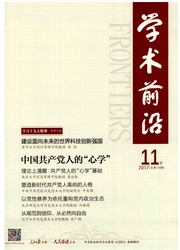

 中文摘要:
中文摘要:
国家治理是一项国家核心的政治实践活动,国家治理现代化是当前我国面临的重大研究课题。为了更好地理解国家治理的实践发展脉络与历史成因本文采取历史主义的分析视角,将中西方国家治理的思想流派放在同一视域下进行比较,分析了特定治理环境中一个国家选择治理模式的关键影响因素,在此基础上构建了国家治理模式的7要素理论模型。根据这一模型,一个国家在选择某种治理模式的时候,首先要考虑治理的环境因素。在特定的国家治理模式中,独特的社会历史背景决定了治理的主体结构与对象:治理主体的价值取向以及治理对象的优先次序决定了治理的主要目标;为了实现治理目标,治理主体选择特定的治理策略与治理技术,并取得相应的治理效果。
 英文摘要:
英文摘要:
National governance is a key political practice of the state, the modernization of national governance is now a major research topic in our country. In order to better understand the evolution and historical causes of national governance practices, this paper adopted a historical perspective, compared Western and Chinese schools of thoughts on national governance from the same angle, analyzed the key factors influencing a country's choice of its governance mode in specific governance environment, and on the basis of this, established the national governance theoretical model consisting of seven elements. According to this model, when a country chooses its governance mode, the first thing is to consider the environment of governance. When it comes to a specific national governance mode, unique social and historical background decides the governance subject structure and the governance object; the value orientation of the governance subject and the priority of the governance object determines the governance objective; in order to achieve the governance objective, the governance subject chooses a specific governance strategy and techniques and obtains the corresponding governance effect.
 同期刊论文项目
同期刊论文项目
 同项目期刊论文
同项目期刊论文
 期刊信息
期刊信息
